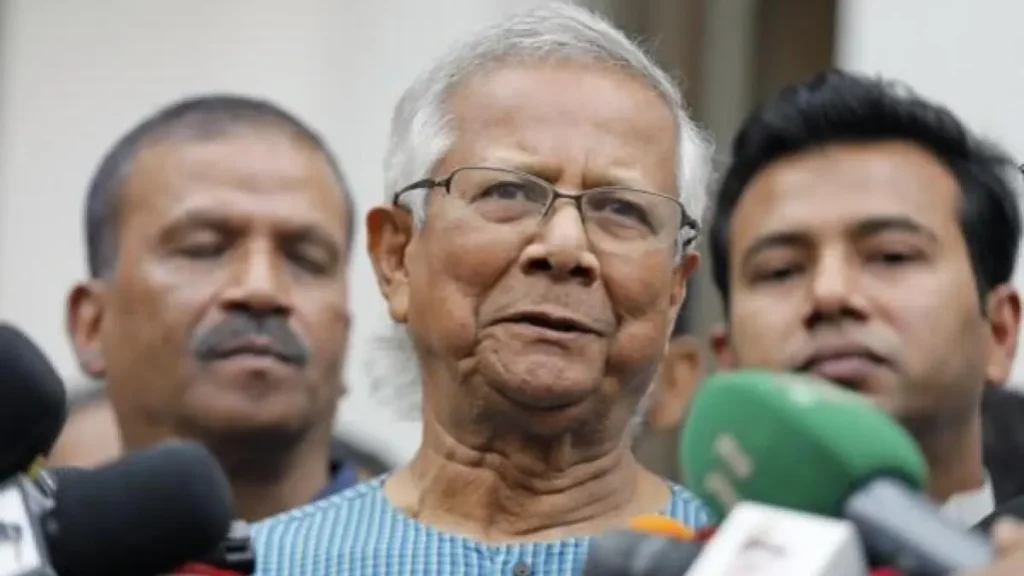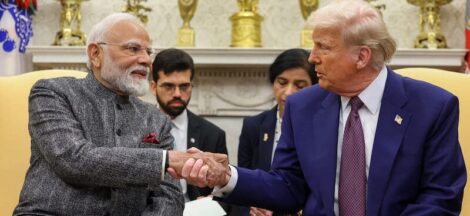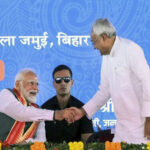By Ashis Biswas
KOLKATA: Eight months after the change of power in Bangladesh, Dr M. Yunus, Chief Adviser to the interim government, has not yet been able to win over major pillars of political power, including leading political groups/parties or the armed forces — to his side.
There was no surprise at any level over the lack of progress during the latest round of talks between Dr Yunus and leaders of the strongest opposition group, the Bangladesh Nationalist Party (BNP) some days ago. Mr. Mirza Alamgir Fakhrul Islam, BNP leader told newsmen that despite repeated requests from various parties, there was no official commitment as to when the next elections would be held. This was the only major issue that concerned all political parties that would contest the polls..
After much procrastination, the interim government has indicated that there could be a general election anytime between December this year and June 2026. But there has been no formal announcement, or even official confirmation on the issue as yet. On the contrary Dr Yunus, in effect an unelected CEO of Bangladesh, has emerged as the most popular leader among Islamic extremist groups like the Jamaatis, the Hifazat-e-Islami, Jihadists returning from Afghanistan, etc others.
Their bonhomie with Dr Yunus extends to the point where he has (or been forced to do so !) appointed many Jihadis to positions of importance within the administration. Under Yunus, the earlier ban on the Jamaat-e-Islami imposed by the AL has been lifted, which would enable them to contest the coming elections.
It may be recalled that all parties except the currently banned AL, had called for fresh elections at the earliest, to end the present political stalemate in Bangladesh. The interim caretaker government, most parties feel, has already taken too much time in carrying out a few so-called ‘electoral reforms’.
In fact, the lack of pace in the preliminary work related to pre-election reforms, now being carried out by concerned authorities has emerged as a major point of discord between the entire spectrum of political parties in Bangladesh and the makeshift administration currently headed by Dr Yunus. There have been occasional exchange of strong words of criticism between the political leaders and Dr Yunus and his team of advisers in the mainstream Bangladesh media.
There has also occurred some unexpected twists in the present situation. The BNP is known as the bitterest opponent of the AL. Yet, to ensure that the polling remains free, fair, and credible within the international community, the BNP has even called for the lifting of the ban imposed by the interim authorities on the AL as a political party. BNP leaders are confident that they would win the polls hands down, given the present anti -AL mood in Bangladesh. There are also strong feelings against India as a country, for having been always close to the hated A’L.
But of late, the BNP has made a definite tactical shift in local as well in the regional politics, so to speak. It has toned down its earlier anti-Indian rhetoric and is supportive of a general call made by other parties, also pressing for an end to the ban on the AL, as with the BNP, the AL’s role in the freedom struggle for Bangladesh cannot be overlooked.
However given the acute personal antipathy that exists between AL leader Sheikh Hasina Wazed and Dr. Yunus, not to mention the BNP’s bitter feelings against Hasina and her close associates, a new proposal to have a ‘refined’ AL has come from other parties.
Their pre condition: Mrs Hasina must return from India and face the trials pending against her for corruption, nepotism and the loss of many innocent lives during her long tenure, while other younger and less familiar figures can be allowed to contest. In any case the new interim government has arrested thousands of AL supporters and cadres, including some ministers and big names already. The AL, according to reports, has hit back, with many leaders and activists leaving Bangladesh to cross over into India, or going further abroad.
To add another layer to the complex backdrop before the coming elections, Yunus’s relations with the Bangladesh Army Chief Waqar-uz-Zaman are not exactly warm. And in Bangladesh, unlike India, the army has been known to play a decisive role in the country’s politics. Two former army Chiefs, Ziaur Rahman and Hussain Mohammad Ershad actually set up political parties by themselves and won enough seats to be able to rule Bangladesh!
However, the army in Bangladesh which has gone through attempted coups, conspiracies and murders at the top, is still not as dominant as a political factor as say, the Pakistani army.
So far, Gen Zaman has not been known to be nursing political ambitions, but that does not mean he is a relative lightweight. From the beginning, at meetings with militant students and most recently with the Buddhist community, he has called for an immediate return to discipline, an urgent revival of the education system and a general toning up within the administration,
Significantly, he is the perhaps the only person in authority repeatedly calling for general, peace and communal harmony, at a time when other leaders, not to offend militant students, have remained silent. Repeatedly he insisted even in the presence of extremist leaders, that Bangladesh is like many larger countries a multifaceted nation with a large mixed community which was a part of its history and ancient traditions,
This harmony must be maintained and all sections of the people must be able to feel that they are all al equals, with no sharp social/religious divisions to keep them apart.
Somehow, he is seen as belonging to the pro-India lobby, as they say, in Bangladesh. Yunus has promptly appointed a US Bangladeshi citizen, one Khalilur Rahman, as a military adviser presumably to clip the wings of Zaman — so runs the speculation. But even while Yunus was settling his people into their assigned slots, Zaman had gone to a trip to Russia, Croatia and other places before returning to Bangladesh, a few days ago.
There are certainly some unease developing between the caretaker regime authorities and the army, which has so far remained united, and not involved in the recent wave of violence that swept the country. Well wishers of Bangladesh hope that things will stay that way in the future also. (IPA Service)




 Confusion Still Prevails In Bihar NDA Over The Chief Ministership After Assembly Polls
Confusion Still Prevails In Bihar NDA Over The Chief Ministership After Assembly Polls 